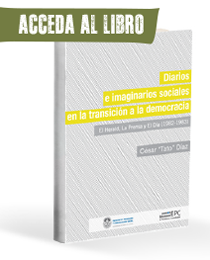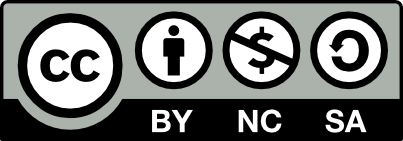Representation and Power
The Newspaper El Comercio and the War against Spain (1862-1866)
DOI:
https://doi.org/10.24215/24690457e031Keywords:
press, representations, public opinion, El ComercioAbstract
This article analyzes the discursive representations made by the newspaper El Comercio, founded in Lima in 1839, which served to disseminate an imaginary public opinion about the events referred to the war between Peru and Spain. The study demonstrates how the influence exerted by the publication, through patriotic speeches, fears and a strong position against the decisions taken by the country's authorities, stimulated the reaction of public opinion and became the violent resistnace of Limans against Spanish intentions in South America.
Downloads
References
Basadre, J. (1961). Historia de la República del Perú. Tomo IV. Lima, Perú: Historia.
Benedict, A. (2006). Comunidades imaginadas. Ciudad de México, México: Fondo de Cultura Económica.
Bonfiglio, G. (2001). La presencia europea en el Perú. Lima, Perú: Fondo Editorial del Congreso de la República del Perú.
Bonilla, H. (1974). Guano y burguesía en el Perú. Lima, Perú: Instituto de Estudios Peruanos.
Bourdieu, P. (2001). Poder, derecho y clases sociales. Sevilla, España: Desclée de Brouwer.
Chang Huayanca, A. J. (2013). Entre la espada y la pared. La administración del Gral. Juan Antonio Pezet frente a la crisis diplomática con España (1863-1865) [Tesis de licenciatura]. Lima, Perú: Universidad Nacional Mayor de San Marcos.
García-Bryce, I. (2008). República con ciudadanos. Los artesanos en Lima, 1821-1879. Lima, Perú: Instituto de Estudios Peruanos.
Ortiz Sotelo, J. (2016). El Combate del Callao (2 de Mayo de 1866). Política Internacional, (120), 83-94.
Peralta, V. (2018). Guerra Internacional, revolución y dictadura: los partidos parlamentarios y la política peruana entre 1865 y 1867. Histórica. (42)1, 85-114.
Porras Barrenechea, R. (1970). El periodismo en el Perú. Lima, Perú: Instituto Raúl Porras Barrenechea.
Ragas, J. (2007). Leer, escribir, votar. Literacidad y cultura política en el Perú (1810-1900). Histórica, (31)1, 107-134. Recuperado de http://revistas.pucp.edu.pe/index.php/historica/article/view/233
Ragas, J. (2009). Prensa, política y cultura impresa en el Perú (1810-1872). En M. Velázquez Castro (comp.), La república de papel. Política e imaginación social en la prensa peruana del siglo XIX (pp. 43-66). Lima, Perú: Fondo Editorial de la Universidad de Ciencias.
Todorov, T. (2007). Nosotros y los otros. Ciudad de México, México: Siglo XXI.
Van Dijk, T. (2009). Discurso y poder. Barcelona, España: Gedisa.
Published
How to Cite
Issue
Section
License
Copyright (c) 2018 Wagner Mejía

This work is licensed under a Creative Commons Attribution-NonCommercial-ShareAlike 4.0 International License.
The acceptance of an original by the journal implies the non-exclusive transfer of the patrimonial rights of the authors in favor of the publisher, who allows the reuse, after its edition (postprint), under a Creative Commons License Attribution-NonCommercial-ShareAlike 4.0 International.
According to these terms, the material can be shared (copy and redistribute in any medium or format) and adapted (remix, transform and create another work from the material), provided that a) the authorship and the original source of their publication (magazine and URL of the work) are cited, b) is not used for commercial purposes and c) the same terms of the license are maintained.
The assignment of non-exclusive rights implies that after postprint in IMPRONTAS de la historia y la comunicación authors may publish their work in any language, media and format; in that case, it is requested that they signal that the material was originally published by this journal.
Assignment also entails the authors’ authorization for the work to be collected by SEDICI, the institutional repository of the Universidad Nacional de La Plata, and for it to be indexed in the databases that the publisher thinks appropriate for enhancing the visibility of the published work and its authors.
In addition, the journal encourages authors to submit their works to other institutional and thematic repositories after their publication in IMPRONTAS de la historia y la comunicación, under the assumption that offering society unrestricted access to scientific and academic production contributes to a greater exchange in global knowledge.






.jpg)


.png)


.png)


















